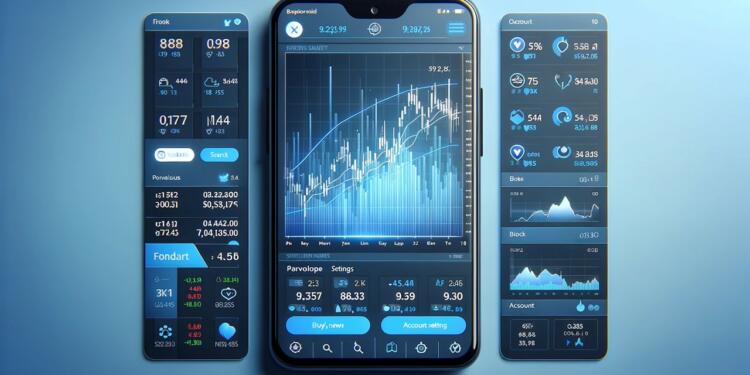For anyone stepping into the world of investing or trading in India, choosing the right broker is a big deal. The first step is to look for a zero brokerage DEMAT account to ensure you save some extra money while trading in the Indian stock market. Our blog simplifies this process by highlighting the top 8 brokers in India along with their detailed features, pros and cons to help you choose the top broker for your trading needs.
Groww

Securing the top spot among the list of top 8 brokers in India is Groww. Established in 2016 by former Flipkart professionals Lalit Keshre, Harsh Jain, Ishan Bansal, and Neeraj Singh, Groww has emerged as a key player in India’s online discount broking sector.
Groww is officially registered with SEBI as a stockbroker, depository participant, and investment adviser, boasting memberships with NSE, BSE, MCX, and CDSL to ensure regulatory compliance and enhance credibility.
Key Features
Distinguishing itself with unique offerings, Groww presents a minimal brokerage charge of Rs 20 per executed trade (or 0.05%) for Equity, Intraday, and F&O trades. The platform provides a user-friendly trading app with 128-bit encryption, catering to the diverse investment needs of over 90 lakh users.
Other features include zero-commission direct mutual funds and instant online account opening.
Fees/Charges
Groww adopts a fixed brokerage model, imposing a flat Rs 20/executed order for the Intraday, Equity Delivery, and F&O trades.
Additional charges encompass auto square-off charges of Rs 50, alongside other transaction, regulatory, and Demat charges.
Importantly, the platform refrains from charging for mutual fund investments or redemptions.
Pros
- Clear pricing model with a flat Rs 20 per trade brokerage.
- No account opening fees.
- Absence of Demat AMC charges.
- Direct Mutual Funds platform offering an additional 1.5% returns.
- Trading available in SME Shares.
Cons
- Lack of Call and Trade services.
- Trailing stop loss orders are unavailable in the Groww app.
- NRI Trading is not offered.
- SME IPOs are not available
Shoonya By Finvasia: Zero Commission Trading Platform in India

Introduced in 2013, Shoonya by Finvasia proudly holds the position as the second-best broker in India, marking a revolutionary step as the nation’s first platform to offer a zero brokerage demat account, allowing users to engage in trading without incurring any commission fees.
Key Features of Shoonya By Finvasia:
- Shoonya covers all trading segments—stocks, mutual funds, bonds, ETFs, futures and options, currency, and commodities on major exchanges like NSE, BSE, MCX, and NCDEX—with zero brokerage.
- Streamlined onboarding with free account setup and zero annual maintenance fees.
- Advanced trading tools include TradingView charts, order slicing, bracket orders, basket orders, and options chains.
- Accessible customer support via phone, email, live chat, and support tickets for prompt issue resolution.
- User-friendly trading interface available on desktop, web, and mobile devices (Android and iOS).
- AI-powered insights for up to 1,500 Indian scrips with daily top picks across long, mid, and short caps.
Fees/Charges – Shoonya By Finvasia’s Brokerage Plans: Zero Hidden Costs
- Zero brokerage on equity intraday and delivery
- Zero brokerage on futures and options
- Zero brokerage on currency and commodities
- Zero brokerage on mutual funds
- Zero brokerage on ETFs and bonds
- Zero brokerage on IPOs
- Zero trading platform charges
- Zero auto-squared-off charges
- Zero volume commitment
- Zero clearing charges (NSE & BSE): Trade without clearing fees on NSE & BSE.
- Zero charges on APIs and Algo trading
- Zero Upfront charges
- Zero account opening charges
- Zero AMC (Annual Maintenance Charges)
- Zero call and trade charges
- Zero hidden charges
CHARGES Details
- Account Opening Charges: Free
- Account Maintenance Charges: Zero
- Plan Charges: Zero
- Call & Trade Charges: Free
Pros
- Zero brokerage on all segments, ETFs, and Mutual Funds.
- Implement bracket orders, cover orders, and GTT (Good Till Triggered) on NSE, BSE & MCX to protect investments, secure gains, and effectively manage trading positions.
Open a free demat account with zero annual charges.
Cons
- There are no physical branches or offices for local support.
- Does not provide Margin Funding services.
Zerodha
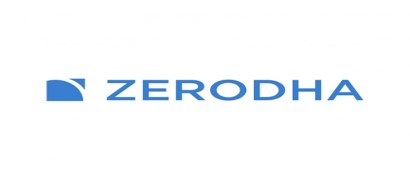
Securing the second position among India’s top brokers, Zerodha commenced operations in 2010, founded by Nithin Kamath, Nikhil Kamath, and Dr. Kailash Nadh. The company, operational since 2010, holds memberships with NSE, BSE, MCX, and CDSL, emphasising regulatory compliance.
Key Features
- Recognised for safety and reliability, it is considered one of the most trustworthy brokers.
- Known for cutting-edge online trading tools and a commitment to technological advancement.
- Zero brokerage fees for Equity Delivery and Mutual Funds, with a maximum charge of Rs 20 per trade.
Brokerage Charges
- Equity Delivery: Rs 0 (Free)
- Equity Intraday, Equity Futures, Equity Options, Currency Futures, Currency Options, Commodity: Flat Rs 20 or 0.03% per executed order (whichever is lower)
- Mutual Fund: Rs 0 (Free Unlimited Direct MF)
Pros:
- Renowned for safety, reliability, and trustworthiness.
- Offers cutting-edge trading platforms and tools.
Cons:
- Does not provide stock tips, research reports, or recommendations.
- No monthly unlimited trading plans or lifetime free AMC demat account plans.
HDFC Securities Ltd.
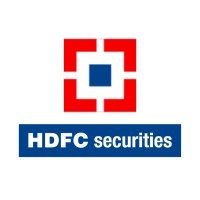
Founded in 2000 as a subsidiary of HDFC Bank, HDFC Securities Ltd. secures the fourth position among India’s best stock brokers,
HDFC Securities Ltd. offers a wide range of financial instruments, including shares, bonds, futures, options, mutual funds, and more.
Features
- It is registered with SEBI and holds memberships in BSE, NSE, MCX, CDSL, and NSDL.
- Provides a 3-in-1 account combining savings, trading, and a Demat account.
- Serves over 1.8 million clients with a comprehensive suite of over 30 products and services.
Fees and Charges of HDFC Securities Ltd
- Account Opening Fee:
- Rs 999 is charged for opening an account.
- Brokerage Charges:
- Equity Delivery: 0.10% per trade.
- Derivatives Trading: Rs 20 per transaction.
- Brokerage for Delivery Based Trades (Equity Segment):
- Resident Indians: 0.50% or minimum Rs 25 or a ceiling of 2.5% on the transaction value (both Buy & Sell).
- NRI’s: 0.75% or minimum Rs 100 or a ceiling of 2.5% on the transaction value (both Buy & Sell).
- Square-Off Trades (Cash & Carry Scrips):
- 0.10% or minimum Rs 25 or a ceiling of 2.5% on the transaction value for both Buy & Sell.
- Square-Off Trades (Margin Scrips):
- 0.05% or minimum Rs 25 or a ceiling of 2.5% on the transaction value for both Buy & Sell.
- Minimum Brokerage Charge:
- Rs 25 per trade.
Pros
- Integrated 3-in-1 Account:
- Combines banking, broking, and Demat accounts for a seamless experience.
- Access to Multiple Assets:
- Offers access to IPOs, Mutual Funds, GOI Bonds, Insurance, and Postal Savings Schemes on both BSE and NSE.
Cons
- High and Non-negotiable Brokerage Fees:
- Charges can be relatively high and are not open to negotiation.
- No Support for Commodity Trading on MCX or NCDEX:
- Does not provide services for commodity trading on certain exchanges.
- Minimum Brokerage Charge:
- Minimum charge of Rs 25 per trade, which may be relatively high for some users.
- Flat Rs 0.05 per Share Brokerage on Stocks Quoting up to Rs 10:
- Trading in penny stocks can be challenging due to this flat brokerage rate.
- Mandatory Account Requirements:
- Requires the mandatory opening of a Demat Account with HDFC Bank Ltd and a Bank Account with HDFC Bank for the 3-in-1 account.
Angel One
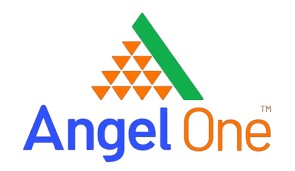
Securing the fifth position, previously recognised as Angel Broking, Angel One is a prominent financial services provider in India, tracing its roots back to 1987.
Key Features
Boasts a user-friendly, swift, and secure trading platform for stocks, commodities, currencies, mutual funds, IPOs, bonds, and more.
Fees/Charges
- Transparent pricing model with flat fees for equity delivery and percentage-based fees for other segments.
Pros
- Flat fee stockbroker charging Rs 20 per order across segments.
- No charges for NEFT/fund transfers.
- Provision of free advisory/tips for stocks and mutual funds.
Cons
- Margin funding provided without notice, leading to confusion and hefty interest charges.
- No trading in SME shares.
- GTC/GTT order facility is not available.
ICICI Direct
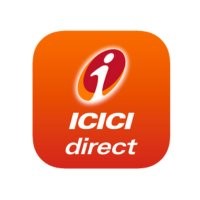
ICICI Direct is ranked sixth on the list and is part of the ICICI Group, serving over 50 lakh customers. It focuses on online trading, offering services for equity, commodity, and currency trading at BSE, NSE, and MCX. The platform also provides various financial services such as Mutual Funds, IPOs, fixed deposits, bonds, home loans, and more.
Features of ICICI Direct
- Diverse Brokerage Plans:
- I-Secure Plan
- ICICI Direct Prime Plan
- Lifetime Prepaid Brokerage Plan
- Neo Plan (Flat-rate brokerage for equity futures trading)
- Comprehensive Financial Services:
- Equity, commodity, and currency trading
- Mutual Funds & IPOs
- Fixed deposits, bonds, NCD
- Home Loans and Loans against Securities
- User-Friendly Platforms:
- ICICIDirect.com Website
- Trade Racer (Trading Terminal)
- ICICIDirect Mobile App
- 3-in-1 Account Integration:
- ICICI Bank Account
- ICICI Trading Account
- ICICI Demat Account
- VTC Feature (Valid Till Cancelled):
- Allows placing buy or sell limit orders valid for 45 days
Pros of ICICI Direct
- Seamless Integration:
- 3-in-1 account combines banking, broking, and demat accounts
- VTC Feature:
- Enables extended validity for buy or sell limit orders
- Wide Range of Financial Services:
- Stockbroking, insurance, investment banking, wealth management
- Home loans, bonds, fixed deposits, IPO services, NCDs, and loans against shares
- User-Friendly Platforms:
- Multiple platforms catering to different trading requirements
Cons of ICICI Direct
- Minimum Brokerage Charge:
- Rs 35 per trade under the standard I-Secure Plan, potentially high for small trades
- The challenge in Penny Stock Trading:
- Flat Rs 0.05 per share brokerage on stocks quoting up to Rs 10
- Call & Trade Charges:
- Rs 25 per call charge after the initial 20 free calls in a month
Upstox

Started in 2011, Upstox ranks seventh among the top stock brokers in India. Operates under SEBI regulations with licenses as a stockbroker, depository participant, and commodity broker.
Features of Upstox
- Comprehensive Suite of Products:
- Covers equity, commodity, futures and options (FnO), currency, IPOs, and more.
- Available on Upstox Pro Web and Upstox Pro Mobile trading platforms.
- Upstox Pro Trading Platform:
- User-friendly interface.
- Advanced charting tools.
- Seamless order execution.
Fees and Charges
- Equity Delivery:
- Rs 20 per executed order/ 2.5% (whichever is lower).
- Equity F&O, Currency, and Commodity Futures:
- Rs 20 per executed order/ 0.05% (whichever is lower).
- Other Charges:
- Call & Trade: Rs 20 per executed order.
- Physical contact notes: Rs 25 per contract note plus courier charges.
- Instant Money Transfer Fee: Rs 7 per transfer.
Pros of Upstox
- Free Online Account Opening:
- No charges for opening an account.
- Flat Brokerage Fee:
- Rs 20 per trade across all segments – delivery, intraday, and F&O.
- Upstox Bridge for AmiBroker:
- Facilitates coding and executing trading strategies using AmiBroker AFL editor.
- Advanced Order Types:
- AMO, CO, SL, and GTT available.
- Upstox Developer Console:
- Allows building a trading app using languages like Python.
Cons of Upstox
- Stock Delivery Brokerage Fee:
- Rs 20 per trade, unlike some brokers offering it without fees.
- No Margin Funding for Delivery Trades:
- Not available.
- No 3-in-1 Account:
- No provision for a combined banking, trading, and demat account.
- No API Access for Automated Trading:
- Not available.
- No NRI Trading and Demat Accounts:
- Absence of services for non-resident Indians.
- Call-and-Trade Fee:
- Rs 20 per executed order.
- Automatic Settlement Charges:
- An additional Rs 20 per executed order.
Kotak Securities Ltd.
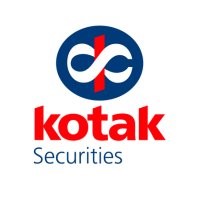
Established in 1994, Kotak Securities Ltd. is a renowned full-service stock broker that ranks 8th on the list of top brokers in India. It offers a 3-in-1 account (Bank + Trading + Demat Account) to retail investors.
Key Features
- 3-in-1 Account:
- Ensures a seamless trading experience by integrating banking, trading, and demat accounts.
- Presence in 393 cities across India.
- Research Offerings:
- Provides free technical, fundamental, derivatives, macro-economic, and mutual fund research.
Fees/Charges
- It offers various brokerage plans, including the Trade Free Plan and Dealer Assisted Brokerage Plan.
Trade Free Plan
- Account Opening Fee: Free
- Plan Fee: Rs 99 (Incl. of GST)
- Intraday Brokerage: Free (All segments)
- Equity Delivery: 0.25% or Rs 20 (whichever is higher)
- Carry forward (All applicable segments): Rs 20 per order
- Demat AMC: Rs 50 per month
Dealer Assisted Brokerage Plan
- Account Opening Fee: Rs 499 (One time)
- Equity Delivery: 0.39%
- Equity Intraday: 0.039%
- Equity Futures: 0.039%
- Equity Options: Rs 39 per lot
- Currency Futures: Rs 9 per lot
- Currency Options: Rs 5 per lot
- Commodity Futures: 0.039%
- Commodity Options: Rs 39 per lot
- Minimum Brokerage: Rs 21 per executed order (subject to a ceiling of 2.5% of contract value)
Pros of Kotak Securities
- 3-in-1 account for seamless integration of banking, broking, and demat accounts.
- Zero brokerage plan available for investors aged up to 30 years.
Cons of Kotak Securities
- Zero Brokerage Plan is limited to investors up to the age of 30.
- High brokerage charges for Equity delivery (0.25%).
- Elevated brokerage fees in the dealer-assisted brokerage plan (0.39% for delivery, Rs 30 per lot for Options).
In conclusion, the top 8 brokers in India offer diverse features catering to the varied needs of investors. It is a must to do proper research when selecting the best broker, considering their unique strengths in terms of seamless integration, extensive research offerings, and transparent pricing structures.



















